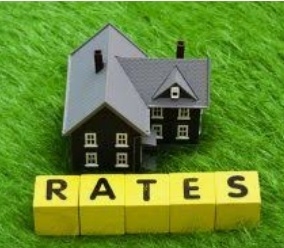Lake Properties Lake Properties
Let’s dive deeper into why property taxes are high in South Africa by expanding on each of the main factors:
1. Municipal Revenue Dependency
South Africa’s local governments are responsible for funding and delivering key services, but they don’t have many ways to raise money. Property taxes (called municipal rates) are their main revenue stream. This money goes toward:
- Maintenance of roads and stormwater systems
- Street lighting and parks
- Rubbish collection
- Local policing (Metro Police)
- Libraries, cemeteries, and public spaces
Since these services are costly and demand is growing, municipalities often raise property taxes to fund them, especially if they’re not getting enough income from other sources like business rates, utility fees, or national government grants.
2. Inflated or Fluctuating Property Valuations
Rates are based on your property’s municipal valuation (not necessarily its selling price). Every 4–5 years, municipalities update these values. If your property value increases (even just on paper), your rates go up.
- Example: If your house was valued at R1 million in 2020 and is revalued at R1.6 million in 2024, your monthly rates could increase even if the tax rate (cents-in-the-rand) stays the same.
- This hits areas with gentrification or rising demand hardest — e.g., people in Woodstock or parts of Soweto are seeing tax increases due to nearby development.
3. Municipal Mismanagement & Corruption
A huge factor in rate hikes is poor governance. Some municipalities are:
- Financially mismanaged — overspending on admin or inflated tenders
- Failing to collect revenue — especially from large non-paying accounts
- Running in deficit — leading to emergency budget increases
When this happens, municipalities often increase taxes across the board, punishing compliant ratepayers instead of fixing systemic issues.
Examples: Mangaung and Ekurhuleni have faced financial trouble, leading to higher rates and weaker services.
4. Urban vs Rural Disparities
In urban areas, land is worth more, and the demand for services is higher. So rates bills are typically much higher in:
- Cape Town (especially suburbs with high land values)
- Johannesburg and Sandton
- Pretoria East
In rural or less developed areas, land is cheaper, but service delivery is often worse. So even with lower rates, residents may still feel the value is poor.
5. Limited Relief for Vulnerable Groups
Many municipalities offer rebates or exemptions for:
- Pensioners
- Indigent households
- Low-income earners
But these aren’t always automatic. Often, you have to apply — and the process is bureaucratic and inconsistent across provinces.
This means even those who should pay less, still pay full rates unless they fight for relief.
6. Cost of Expanding Infrastructure
South Africa’s urban population is growing, and cities need to expand infrastructure to accommodate more people, especially in informal settlements. Property taxes are a key way municipalities raise funds to:
- Upgrade roads and drainage
- Expand water and sewer systems
- Build low-cost housing
This leads to rate increases even in areas not directly benefiting from the development.
7. Unclear Billing and Complex Statements
Another issue is that property tax is often bundled with utility bills (electricity, water, refuse). This confuses many residents, and it’s hard to track exactly how much you're paying just in rates.
This lack of transparency fuels the belief that taxes are unnecessarily high, especially if services are lacking.





No comments:
Post a Comment